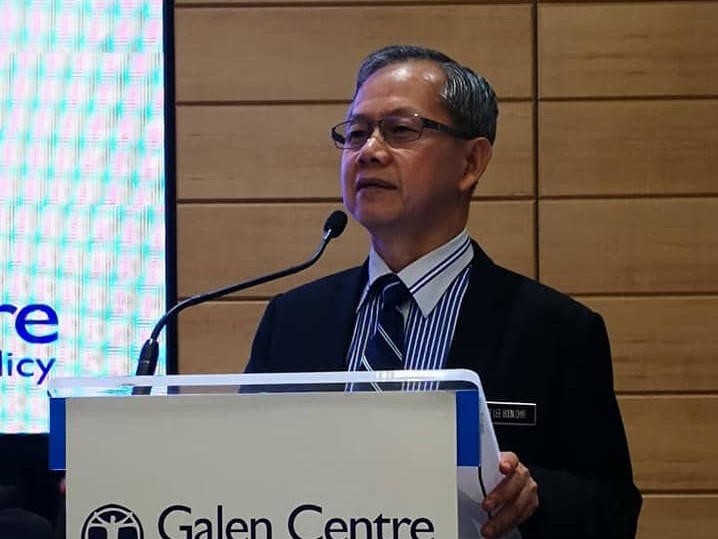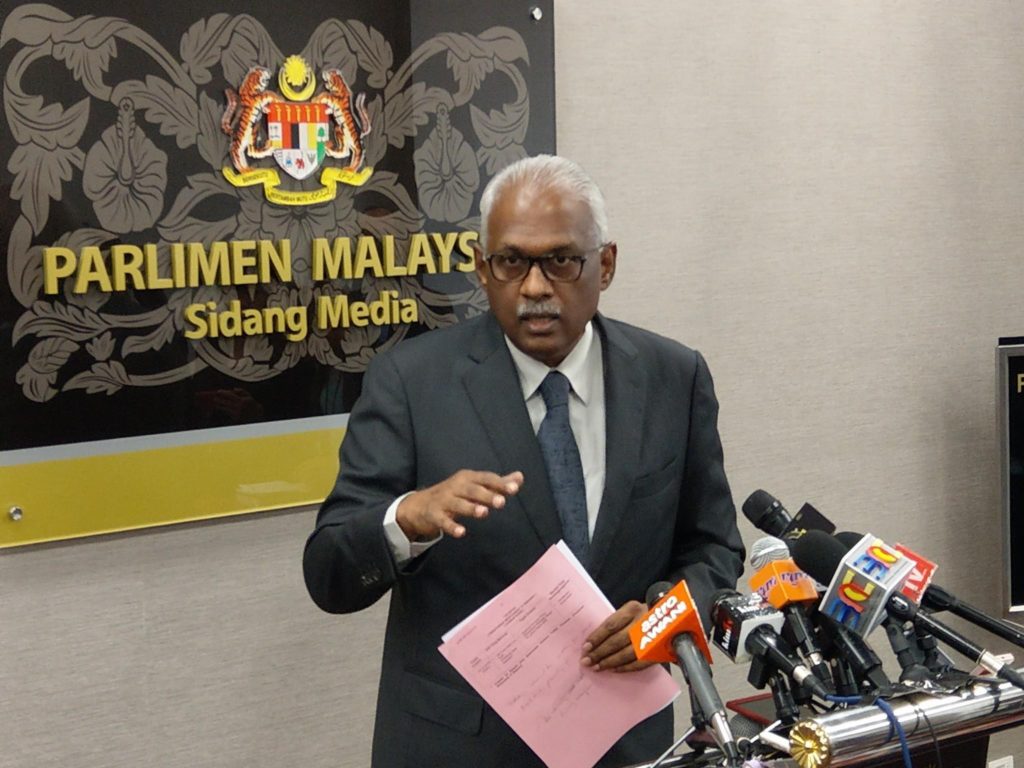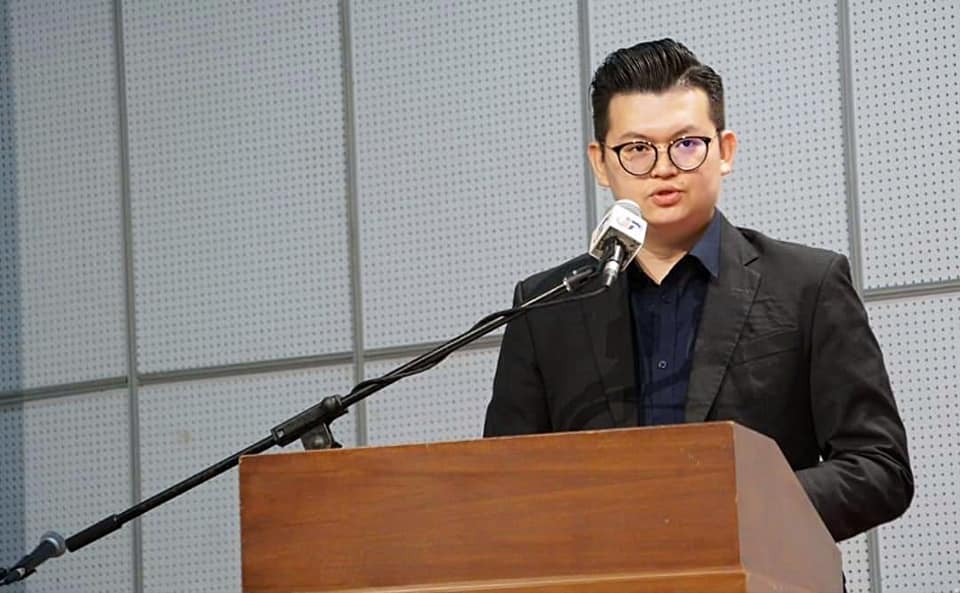KUALA LUMPUR, May 21 — Federal lawmakers have urged Gilead Sciences to review its decision to exclude Malaysia from receiving generic versions of its experimental Covid-19 drug remdesivir under licencing agreements.
Three Opposition Members of Parliament told the American pharmaceutical giant that although Malaysia is officially classified as an upper middle-income country, the coronavirus pandemic has hit the Malaysian economy hard, while income inequality is high.
Bandar Kuching MP Dr Kelvin Yii, who’s a trained doctor, highlighted a clinical trial by the United States’ National Institutes of Health (NIH), where data from an “interim” analysis found that hospitalised patients with advanced Covid-19 who received remdesivir, an antiviral drug, recovered faster than patients who received a placebo. Those who received the treatment had a median recovery time of 11 days, four days fewer than 15 days for those who received the placebo.
“That is why I believe through the government and the Ministry of Health (MOH) — they should seek a clearer explanation, especially on the conditions Malaysia didn’t manage to fulfill to receive the generic versions of remdesivir, especially since Malaysia was part of the World Health Organization (WHO) Solidarity Trial that compares the safety and effectiveness of remdesivir and three other treatments for hospitalised adults diagnosed with Covid-19,” Dr Yii told CodeBlue.
“I strongly believe we should get more benefit and value as being part of the trial, especially taking into account the efforts of our health care workers and even the risk the patients take to be part of the trial, especially in terms of drug pricing,” he said, referring to the global WHO study on potential treatments for Covid-19, including remdesivir, which nine MOH hospitals are participating in.
The NIH clinical trial involving 1,063 patients also suggested a survival benefit, as 8 per cent of the participants who received remdesivir died, compared with 11.6 per cent of the placebo group. But STAT reported that this difference was not statistically significant and the study was stopped when placebo patients were given remdesivir, before researchers could prove if the drug saved lives.
Gilead Sciences excluded three Asean countries — Malaysia, Singapore, and Brunei — from receiving remdesivir in recent deals signed with five generic companies in India and Pakistan to manufacture and distribute the experimental medicine to 127 nations, mostly low-income and lower-middle income countries.
Dr Yii said he hoped the government would urge the biotech company to review its decision, saying that the World Bank classification of Malaysia as an upper middle-income country was not a holistic assessment and may not show actual conditions on the ground.
“Income inequality is very high in Malaysia and the gap between the rich and poor is big. Huge majority of Malaysians are in the mid-lower income bracket and such conditions will worsen progressively due to the economic impact of Covid-19,” said the DAP lawmaker.
“That is why I do not believe Malaysia has the capacity to spend as much on health care as other countries such as Singapore, South Korea, or even Hong Kong,” he added. “We do not want to see people being left out of any needed treatment because of their socio-economic status.”
The Department of Statistics Malaysia said the unemployment rate increased to 3.3 per cent last February, with 525,200 jobless people, from 3.2 per cent in January. The unemployment rate is predicted to rise in March from the internal economic shock caused by the Covid-19 pandemic that had not yet hit the country in February. Malaysia has reported over 7,000 Covid-19 cases and 114 deaths from the novel coronavirus.
The Edge reported that the Malaysian Institute of Economic Research (MIER) forecast an unemployment rate of 9.2 per cent in a 15.87 million-strong workforce, or 1.46 million people, in the worst-case scenario. Under this scenario, the economy is predicted to contract by 1 per cent year on year, or to expand by 3.8 per cent in the best-case scenario.

Former Deputy Health Minister Dr Lee Boon Chye said Malaysia can’t afford to pay the same price for medicines as Singapore with an income five times that of Malaysia, or South Korea with an income four times higher than Malaysia.
The Gopeng MP from PKR also suggested that Malaysia explore using a compulsory licence to obtain generic versions of remdesivir without patent owner Gilead’s consent — just like what Malaysia did with another Gilead drug, sofosbuvir, to treat Hepatitis C — if remdesivir is proven effective for Covid-19 but prices are high.
“This pandemic is a once-in-a-century event. Gilead has already made enough money from the Hepatitis C treatment,” Dr Lee told CodeBlue.

Klang MP Charles Santiago suspected that Gilead’s exclusion of Malaysia from obtaining generic versions of remdesivir could be related to how Malaysia used a compulsory or government-use licence for sofosbuvir.
“It could be a payback for sofosbuvir,” Charles told CodeBlue.
“They used the US State Department to pressure Malaysia. The two-year government use for sofosbuvir comes to an end this year. It could be a way of telling Malaysia, pointing the finger at Malaysia, we’re not going to put up with this nonsense. It’s our show. You play by our rules or you don’t.”
When asked if Malaysia should consider not renewing the government-use licence for sofosbuvir this year in exchange for getting remdesivir for Covid-19 patients, Charles said generics were “far better”.
“It opens an avenue for developing countries to develop the generic industry and challenge Big Pharma. We can still live with the generic version. You cannot hold us in ransom over such a monopoly,” he said, pointing out that the price of sofosbuvir dropped from RM360,000 for a full course of treatment of the original drug to RM1,248 for the generic version.
He urged Asean to collectively negotiate with Gilead as a bloc to introduce a single price for remdesivir for all member states, instead of a higher price for Malaysia, Singapore, and Brunei.
When asked if prices of the original remdesivir would likely be low anyway due to high demand if it is used as a global standard of care for Covid-19, Charles said this may not necessarily be the case, claiming: “They can keep it artificially high.”
The DAP lawmaker told pharmaceutical companies not to think of profit during the Covid-19 pandemic that has infected over 4.9 million people and killed at least 323,000 worldwide, stressing that medication for coronavirus should be considered a “public good”.
“I can understand they’ve invested money, they’ve spent money on hiring people, buying technology from lots of places. I think with affordable prices, we should be able to cover all of that,” he said.
“People are unemployed, the government’s fiscal space is limited. This is now about saving lives and about affordability. If you keep prices high, you’re only helping the rich to live, the poor will die.”








